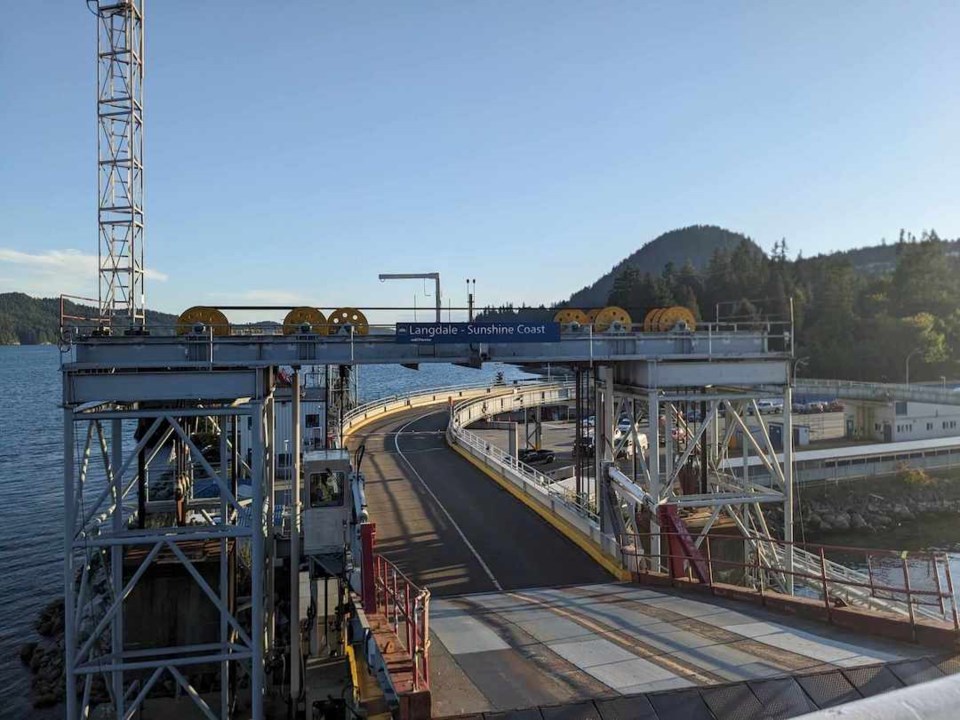The number one thing that the public wants BC Ferries to improve upon is reliability.
In March, BC Ferries posted its Charting the Course public engagement report, summarising the responses they heard through community consultation from Nov. 8 to 28, 2023, and their plans for the future.
The consultation features an online survey, which had 9,400 participants, 561 of whom were BC Ferries employees, and 1,157 of whom were Sunshine Coast residents. BC Ferries also hosted 36 meetings and workshops, which saw 400 attendees.
Thirty-three per cent of these participants said improved reliability was their main concern, 30 per cent listed affordability and 17 per cent said better integration with transit was their top priority.
“The way that people live, work and travel is evolving and we know the population of B.C. is set to grow significantly in the coming years. It’s important that we continue to respond to today’s customers’ expectations as well as look longer term to best ensure our service remains reliable and affordable,” said BC Ferries’ CEO Nicolas Jimenez in a news release. He said that he is encouraged that BC Ferries has their focus in the right place and that these results will be “invaluable” in guiding decision-making for the future.
According to the press release, BC Ferries has identified five key areas to focus its policy work: service levels, integration of ferry services into the wider transportation network, the role of coastal ferries in the movement of goods, approaches to pricing and demand management and approaches to reducing Greenhouse Gas emissions.
The report states that cancellations due to crew shortages have dropped by 37 per cent compared to the same time last year.
BC Ferries will also be integrating several new vessels over the next decade, addressing growing capacity needs and replacing older vessels.
The report states that four Island Class vessels are scheduled to be ready by 2027, and seven major vessels are set to join the fleet in 2029.
Future phases of BC Ferries' community engagement will focus on service delivery partners like BC Transit and Translink, as well as provincial governments and Indigenous communities.
Increase in fares
BC Ferries also recently announced a 3.2 per cent increase in fare costs across the system, which took effect April 2.
This means that the cost of a standard vehicle (excluding a driver) on the Horseshoe Bay to Langdale route will increase to $53.30 from $50.45 and passenger rates will jump to $15.15 from $14.70.
While it was not included in the report, BC Ferries also increased the reservation fee on Route 3 by 33 per cent, raising it to $20 from $15.
Jordan Copp is the Coast Reporter’s civic and Indigenous affairs reporter. This reporting beat is made possible by the Local Journalism Initiative.



